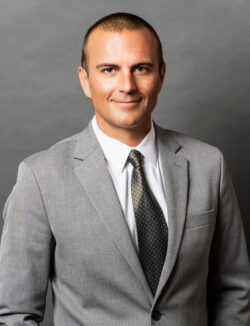International Regulatory Update: The UK’s House of Lords Weighs Insurance Regulation Tweaks

What is the function of insurance industry regulation?
Is it merely to ensure that companies in the sector obey the rules, or should regulators encourage market growth and competitiveness by working with, rather than against, insurance and reinsurance companies?
That was a key question to emerge from the early stages of an inquiry into the regulation of the UK insurance sector by the Industry and Regulators (I&R) Committee of the House of Lords that began near the end of January.
The House of Lords is the upper chamber of Britain’s Parliament.
Its I&R Committee is considering regulation of the insurance industry “in the context of the Government’s Future Regulatory Framework Review, which includes a proposal to add new statutory secondary objectives [to the remit of its financial regulatory bodies] to support the competitiveness of the UK,” Committee chairman Lord Hollick told Risk & Insurance® in an interview conducted by email.
“This raises the crucial question of whether the regulation that is currently applied to the London market is proportionate and being implemented as effectively as it should be, given the importance of this sector to the UK,” Hollick said.
“The committee will hear evidence from a range of stakeholders—industry associations, academic experts, insurers and brokers, the Bank of England and the Financial Conduct Authority, as well as the Government,” Hollick explained.
“On the basis of this evidence, as well as written evidence that will be submitted, the committee will come to a judgment on the adequacy of the existing regulatory framework and how it is applied in practice; this will include any potential changes that could be made to improve the UK’s regulation of this sector.”
Particular areas of interest to the Committee include: The size and significance of the insurance and reinsurance market relative to the wider UK financial sector; whether industry regulation in the UK is proportionate and how it might be improved; whether UK regulation in the sector encourages or discourages innovation; whether, post-Brexit, the UK is still largely dependent on EU regulation policy; and whether regulation has caused insurers to base themselves outside the UK.
The Committee heard from two pairs of witnesses while written applications were being received, a window that closed on February 11.
Caroline Wagstaff, CEO of the London Market Group, which represents all the constituents in the London wholesale insurance market, and Christopher Croft, CEO of the London & International Insurance Brokers’ Association, represented the industry at a videconference meeting with the Committee.
Wagstaff summarized the markets’ views by saying, “We do not want wholesale changes to the regulations themselves, but we think that some refinements are needed.”
The opinions of academia were heard at an in-person session from Dr. Franziska Arnold-Dwyer, senior lecturer in insurance law at Queen Mary University of London, and James Davey, professor of insurance and commercial law at the University of Bristol Law School.
The academics seemed more satisfied with the status quo, prompting Committee member Lord Grade to tell the academics that his “takeaway from this session is that everything in the garden is rosy and that we are wasting our time with this inquiry.”
The Committee is also considering the policies of the British Government to promote industrial growth, skills and competitiveness. The industry representatives were much in favor.
“If you look across competitors, particularly the growing markets, their regulators definitely have set within their duties or responsibilities a growth and competitiveness remit,” Wagstaff said.
British regulators markedly do not, but the Treasury, the government department responsible for finance, is now proposing a change toward that direction.
The need for proportionality in regulation—different rules for a giant insurer than for a small captive, for example—was also stressed by the CEOs.
“One of the first things [the industry needs] is an understanding from the regulators that there is proportionality, that not all insurance companies will pose the same risk to the financial services system,” Wagstaff told the Committee.
“At the moment, there is a one-size-fits-all type of regulatory approach.
“Equally,” she continued, “there is really no differentiation between insurance and reinsurance, yet reinsurance is 100% bought by insurance companies.”
Wagstaff added that the same lack of uniformity of regulation applied to captives.
“That complete lack of appreciation of the risks posed by different types of clients and different types of insurers is something that we think needs some in-depth work,” Croft echoed in his testimony.
Arnold-Dwyer questioned whether there is “a case for differentiating the level or intensity of regulation between direct insurance and reinsurance.”
The argument, she said, “is that reinsurance is insurance for grown-ups.”
The London market was stable but “stagnant” before the pandemic, Wagstaff said, with its reinsurance market share shrinking in the last couple of years.
Suggesting that part of that is due to regulators placing cautionary obstacles in the way of insurance companies, Croft borrowed a phrase from Andrew Bailey, the Governor of the Bank of England, who once said that “at the moment, it is too easy to achieve the stability of the graveyard.”
Committee member Baroness Bowles encapsulated the views of the industry representatives as seeing “problems not so much in the legislative and rule framework as in its execution.”
Wagstaff replied: “The framework is strong; it is the regulators being disciplined in the way they work within that framework that we think needs addressing.”
Croft said he was “not sure that the current framework with regard to [regulators’] direct responsibility to the Treasury Committee and others is as strong as it needs to be.”
The Financial Conduct Authority “asked overseas clients what the biggest impediments were to bringing more of their business to London,” Croft said.
“The number one factor cited was the cost and complexity of compliance and duplication of compliance checks between domestic markets and when the business is brought to London.”
Davey said, “We must recognize that we have chosen to make the development of [regulatory] interventions relatively slow.”
The same is true of the insurance-linked securities (ILS) market, Wagstaff told the Committee: “$700 million of ILS investment was done in Singapore that could have been done in London.”
On Brexit, Wagstaff said, “the early signs are that some business has definitely been lost to London that is now written in the EU itself.”
She had “chatted to a U.S. insurer operating in London that also has quite extensive EU operations, [whose representative] said that it probably sees the national regulator in its EU countries maybe 10 times a year, whereas it sees the UK regulator between 100 and 150 times a year.”
Davey commented, “Brexit has shown that … uprooting a lot of assets from the UK and into Brussels and other places has been incredibly costly.”
Lord Hollick said that he expects the inquiry to conclude “sometime in May, although meeting dates for the various public evidence sessions are still to be finalized.”
He added, in conclusion: “As to whether everything in the garden is rosy, we will hear from other people in the garden shortly.” &











